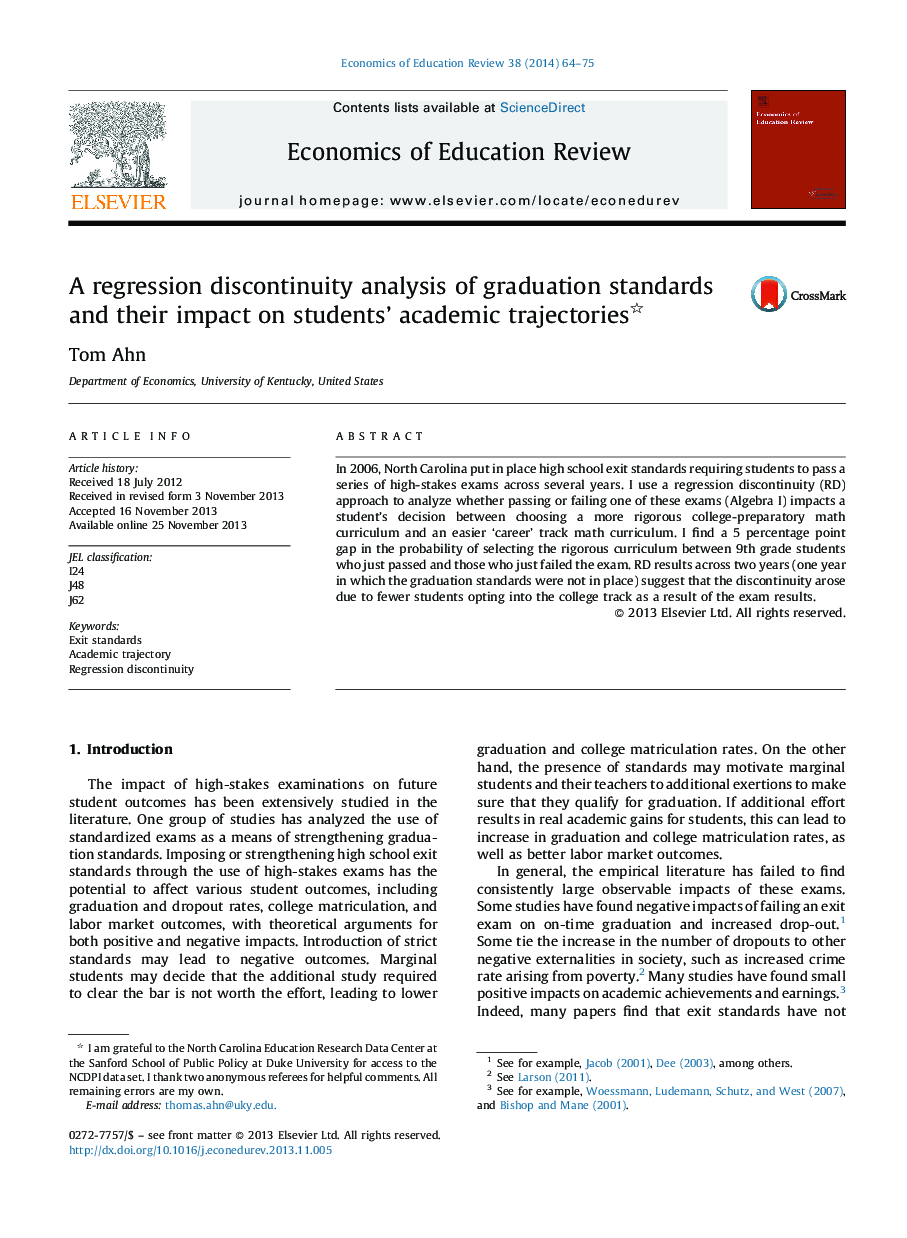| Article ID | Journal | Published Year | Pages | File Type |
|---|---|---|---|---|
| 354375 | Economics of Education Review | 2014 | 12 Pages |
•RD is used to study the impact of a graduation exam on academic trajectory.•9th graders who fail are 5 percentage pts. less likely to take college prep math.•No discontinuity in a control year RD shows that the impact of the standard is real.•The two RD results slice impact into negative (positive) impact of failing (passing).
In 2006, North Carolina put in place high school exit standards requiring students to pass a series of high-stakes exams across several years. I use a regression discontinuity (RD) approach to analyze whether passing or failing one of these exams (Algebra I) impacts a student's decision between choosing a more rigorous college-preparatory math curriculum and an easier ‘career’ track math curriculum. I find a 5 percentage point gap in the probability of selecting the rigorous curriculum between 9th grade students who just passed and those who just failed the exam. RD results across two years (one year in which the graduation standards were not in place) suggest that the discontinuity arose due to fewer students opting into the college track as a result of the exam results.
